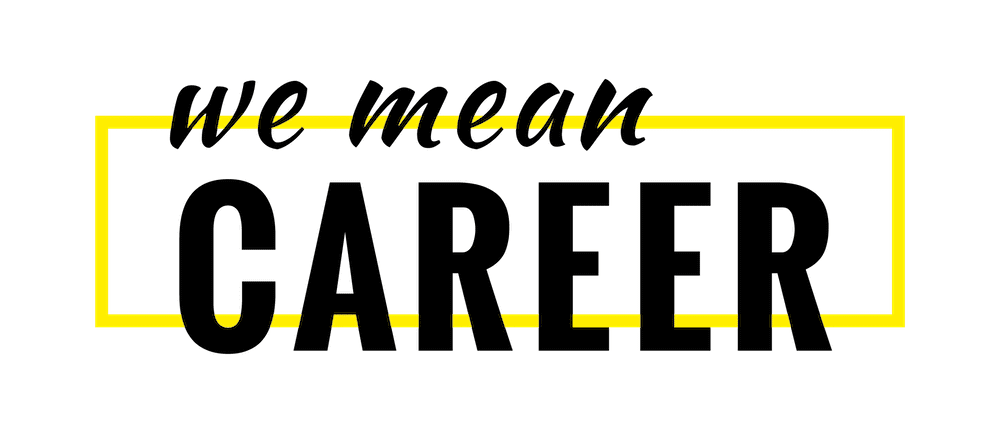HOW TO SET CAREER GOALS

Why You Should Set Career Goals
Professionals with amazing careers do not stumble into success but rather envision what is possible for them and work towards achieving their goals.
Career goals give you direction for how you will spend your time, like pursuing more education or a different job title. Setting career goals is a proven strategy for achieving success, allowing you to. focus on the bigger picture and stay the course when things get tough. Plus, they make you more aware of opportunities that will help you achieve your goals.
Facebook COO Sheryl Sandberg has said famously, “If you’re offered a seat on a rocket ship, don’t ask what seat! Just get on.”
Setting your career goals is also valuable preparation for an interview. In any given job interview, you can count on being asked about your career goals. By asking that question, the interviewer really wants to know if you will be committed to the employer. They also want to know how ambitious are you and find out if you want to stay in the role you’re hired for, or if you want to rise within the company. Your answer will help the employer decide if they will invest the time and money required to welcome you to the team and train you. So, what are your career goals?
Self-Assessment
Before setting your career goals, you first need to set aside some time for self-reflection. Answer these four questions to complete the process.
1. What are my job qualifications?
Think about degrees, certificates, and proficiency in hardware and software programs
2. What are my professional accomplishments?
These could be awards, innovations you introduced, problems you solved, sales or membership growth you achieved, etc
3. What have I enjoyed doing most in the workplace?
This could be projects or activities like learning new skills, teaching, mentoring, collaborating with others, negotiating, or sales
4. What are my strengths?
Think about your accomplishments as well as kudos and compliments you’ve received in the workplace–informally or formally such as during a review
Now that you’ve assessed the tools in your toolbox, it’s time to identify careers that would allow you to utilize your strengths and qualifications and allow you to do what you enjoy most.
Or, as British Journalist Katharine Whitehorn says, “Find out what you like doing best, and get someone to pay you for doing it.”
Career Exploration
Ask Questions in Your Workplace
If you’re currently employed, the easiest way to learn about possible careers is to assess the roles at your company. Look at the positions within your department and beyond and consider if any of those positions appeal to you. Aside from observation, ask your questions colleagues to learn more about their jobs.
Do Internet Research
It’s important to stay informed about the creation of new jobs, the changes in demand for workers and skills, and the development of new technologies as these factors will impact your career possibilities and goals. Take some time to research jobs and job trends by typing search phrases like, “Careers in Artificial Intelligence” and reading about specific job titles and responsibilities. You can also explore careers on career exploration websites like Career Explorer.
Include companies and people in your internet research as well. Look for companies that align with your values and could meet your needs. Great Place to Work regularly surveys and publishes findings on best workplaces for targeted audiences like women, millennials, or parents and other factors like diversity and giving back. If you want to find the best workplaces in a particular geographic area such as Europe, they provide those lists too. Finally, you can find great places to work in a specific industry such as financial services & insurance, technology, or healthcare. In addition to Great Place to Work, Forbes, Gallup, and Fortune also publicize workplace awards. Learn more about companies that have caught your attention on employer review sites like Glassdoor. There are some great niche sites and region-specific sites as well, such as FairyGodBoss for women and Kununu for European jobseekers.
If you stumble upon someone with an interesting career during your research, learn about the jobs they held before that position to understand their career progression.
Network
Many people obtain jobs at companies they thought they wanted to work for only to find out the job or workplace is not a good fit for their temperament, skills, or workplace preferences. To avoid that frustrating scenario, gather information about positions and companies straight from the source. Networking with people in those companies and positions and setting up informational interviews with them is an excellent way to dig deeper and either confirm your interest or steer you in a different direction.
Gain First-Hand Experience
Perhaps the best way to decide if a job and company are a great fit for you are to gain first-hand experience through job shadowing, interning, or volunteering in that role or for that company. You’ll get the uncensored version of what it’s like to work in that role and company.
Goal Setting
Now that you have identified and vetted possible career paths, you’re ready to set your career goals.
Set Your Long-Term Career Goals
Identify a specific long-term goal. It should be something you wish to attain five or more years in the future.
Example Career Goal: If you already have a technical degree, you may set a career goal of becoming a technical product manager for a web services leader.
Set Short-Term Career Goals
Your short-term career goal should address your plan for reaching your long-term career goal.
Example Career Goal: If your long-term goal is to become a technical product manager, you may set your short term career goals as advancing from a programmer to a lead programmer role within the next 2 years and getting involved in more projects that allow you to build web services and multi-tier systems.
Sticking To Your Goals
Your career goals can help guide your decision-making each day, so you want to keep your goals at the top of mind. So, write them down and put them in a place you can see (such as your daily planner) and reflect on them. Another way to prioritize your career goals is to tell them to those closest to you so they can support you and hold you accountable in reaching them.
Keep an open mind to discoveries you may make about yourself, a company, or the workplace in the future, and be willing to adjust your career goals, reviewing them before job interviews or an annual performance review.
Golden Rules for Successful Goal Setting
- Work out what you want
- Be precise and realistic
- Make sure that your goals are important to you
- Set SMART goals:
- Specific
- Measurable
- Attainable
- Relevant
- Time bound
- Write down your goals
- Set priorities
- Make an action plan
- Express your goals positively
- Break the big picture down into smaller and more specific goals
- Tell someone about your goals to increase the likelihood that you will stick with them
- Write your goals in a journal to keep track of both personal and professional progress
- Set deadlines
- Don’t forget to celebrate when you achieve your goals
- Keep setting new goals




